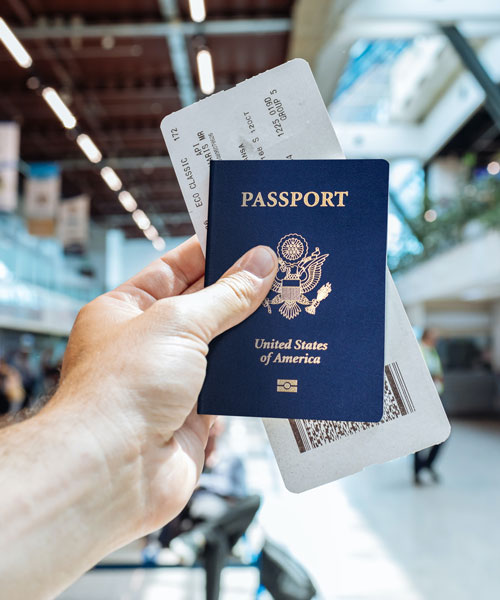Statement of Purpose (SOP) Guidelines
Your Key to Admission Success
A Statement of Purpose (SOP) is one of the most important documents you’ll submit when applying to study abroad. It’s your chance to present yourself beyond test scores and grades, to showcase your motivation, goals, and why you are an ideal fit for the program you’re applying to. Your SOP should communicate your passion for the field of study, academic background, professional goals, and why you want to study at a particular university.

A well-written SOP can make a significant difference in your admission prospects, making it essential to understand the key elements that should be included and how to structure your document effectively.
What is an SOP?
A Statement of Purpose is a personal essay that describes your academic and professional background, your reasons for choosing a specific program, and your long-term goals. It serves as an introduction to your application, providing the admissions committee with insight into who you are, what motivates you, and why you’re applying to their program.
Why is the SOP Important?
- Showcase Your Motivation: An SOP provides insight into your reasons for pursuing higher education and why you chose a specific field of study.
- Demonstrate Fit: It helps demonstrate why you are a good fit for the program and how your academic goals align with the university’s offerings.
- Highlight Your Unique Qualities: It’s a chance to present your individuality and distinguish yourself from other applicants.
- Make a Strong Impression: A well-written SOP can set you apart from the competition by showcasing your personality, commitment, and academic potential.
Key Elements of a Strong SOP
A strong SOP should include the following key components:
- Introduction
- Briefly introduce yourself, including your current academic status, your interest in the field, and why you are applying for this specific program.
- Include a captivating opening that grabs the reader’s attention (e.g., an inspiring anecdote, a personal experience, or a defining moment in your academic journey).
- Academic Background
- Discuss your previous academic experiences, including relevant coursework, projects, or research.
- Highlight specific achievements, awards, or challenges that have shaped your interest in the field of study.
- Mention your undergraduate degree or any prior education, emphasizing skills or knowledge that will support your future academic work.
- Professional Experience (if applicable)
- Include any internships, work experience, or volunteer work that aligns with your academic interests or career goals.
- Explain how your professional experiences have prepared you for graduate studies, providing real-world context for your academic goals.
- Why This Program?
- Explain why you are applying to this particular program at this university.
- Discuss the specific aspects of the program that attract you, such as courses, research opportunities, faculty members, or university resources.
- Show that you’ve researched the program thoroughly and can articulate why it is the best fit for your academic and professional goals.
- Career Goals
- Clearly outline your short-term and long-term career goals and explain how the program will help you achieve them.
- Link your goals to what you expect to gain from the program, emphasizing how the degree will enhance your future career prospects.
- Conclusion
- End on a positive note, reiterating your enthusiasm for the program and your readiness to contribute to the university community.
- Mention how you envision yourself contributing to the university, whether through academic achievements, extracurricular involvement, or cultural exchange.
SOP Writing Tips
- Be Authentic
- Your SOP should reflect who you truly are. Avoid exaggeration or generic statements that could apply to anyone. Be honest about your experiences, motivations, and future goals.
- Keep It Focused
- Stick to the point. Be concise while providing enough detail to show your genuine interest in the program. A clear and focused SOP will be much more effective than a rambling one.
- Show, Don’t Tell
- Instead of just telling the reader about your skills or qualities, provide examples that demonstrate them. For instance, rather than saying “I am a hard worker,” explain a situation where your hard work led to success.
- Use Clear and Simple Language
- Avoid jargon, complex words, or overly technical language unless necessary. Your SOP should be easy to read and understand. Ensure that your message is clear and direct.
- Follow Word or Page Limits
- Each university may set a word or page limit for the SOP. Stick to these guidelines as exceeding the limit may result in your SOP being overlooked. Generally, a 1000-1500 word count is ideal.
- Proofread
- After writing your SOP, take the time to review and edit it. Check for spelling, grammar, and punctuation errors. Also, ensure that the structure flows well and the content is coherent.
- Be Specific and Tailored
- Don’t use a generic SOP for all applications. Tailor each SOP to the specific program and university you are applying to, demonstrating your research and interest.
Common SOP Mistakes to Avoid
- Vague or Generic Statements: Avoid clichés or generic phrases such as “I have always been passionate about X.” Be specific and offer concrete examples.
- Too Much Focus on Past Achievements: While it’s important to highlight your achievements, your SOP should also reflect your future aspirations and how the program aligns with your goals.
- Overloading with Information: Including irrelevant or excessive personal details can clutter your SOP. Stick to what’s relevant to your academic and career objectives.
- Lack of Research: Don’t write your SOP without understanding the program you’re applying to. Failing to mention specific aspects of the program shows a lack of genuine interest.
How Long Should an SOP Be?
The length of an SOP can vary depending on the university’s guidelines. Typically, most universities recommend an SOP of about 1000-1500 words (1-2 pages). Always check the specific word count or page limit for each application.
SOP Sample Structure
Here’s a simple structure you can follow for your SOP:
- Introduction
- Brief self-introduction and motivation for choosing the field.
- Academic Background
- Key academic experiences, achievements, and skills relevant to your chosen program.
- Professional Experience (if applicable)
- Work or research experience that supports your academic goals.
- Why This Program?
- Why you chose this university and program specifically.
- Career Goals
- Short-term and long-term goals, and how the program will help you achieve them.
- Conclusion
- Reiterate your enthusiasm and future contribution.
The Statement of Purpose is your opportunity to make a compelling case for why you should be admitted to a program. By crafting a thoughtful and well-organized SOP, you can demonstrate your passion for the field, your academic potential, and how the program aligns with your career goals.
Take your time to reflect on your experiences, goals, and aspirations, and make sure your SOP communicates your genuine interest and preparedness for the program.








